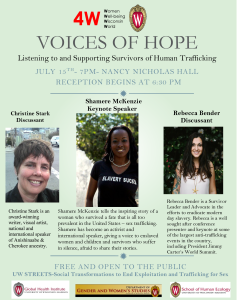Abstract
“Survivors of prostitution propose a policy reform platform including three main pillars of priority: criminal justice reforms, fair employment, and standards of care. The sexual exploitation of prostituted individuals has lasting effects which can carry over into many aspects of life. In order to remedy these effects and give survivors the opportunity to live a full and free life, we must use a survivor-centered approach to each of these pillars to create change. First, reform is necessary in the criminal justice system to recognize survivors as victims of crime and not perpetrators, while holding those who exploited them fully responsible. Second, reform is necessary to assist survivors in finding fair employment by offering vocational training, financial counseling, and educational scholarships, as well as offering employment opportunities that utilize survivors’ vast array of skills and interests. Finally, standards of care for survivors exiting prostitution should focus on supporting survivors in our journeys and support short- and long-term resources that empower us. These systemic changes are necessary to recognize survivors as the valuable human beings we are and to support survivors in fulfilling our vast potential.” Read More at Dignity: A Journal on Sexual Exploitation and Violence: Vol. 3: Iss. 3, Article 10.






Social Media